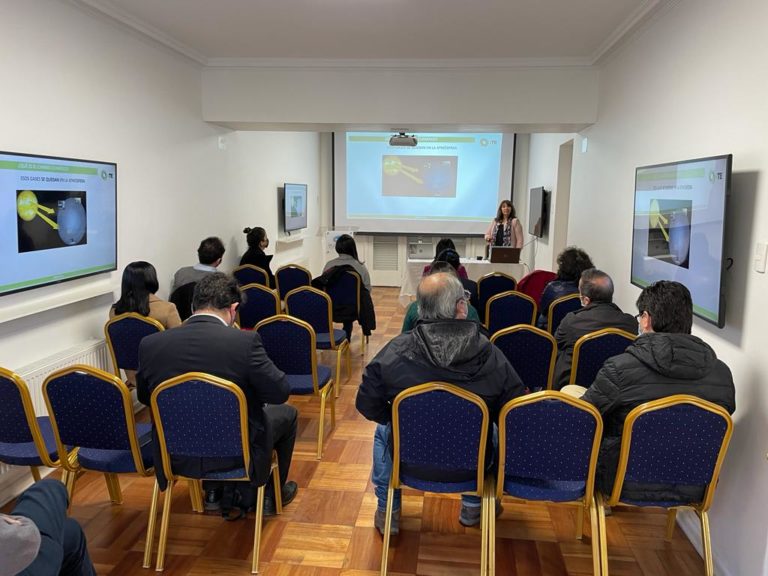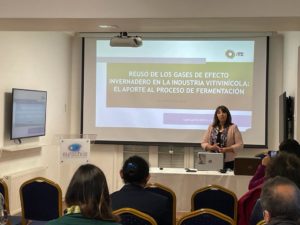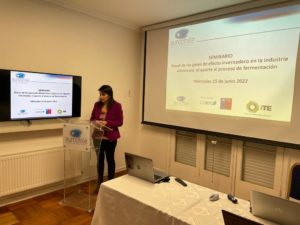Eurochile and ITE co-organize a seminar aimed at the wine industry
“Reuse of greenhouse gases in the wine industry” is the name of the seminar held last Wednesday at the Eurochile Business Foundation, which featured presentations by prominent professionals from the Instituto de Transferencia Tecnológica y Emprendimiento (ITE).

Last Wednesday at Eurochile, June 15, within the framework of the project “Optimization and Validation of the System for Recycling and Reuse of Gases in the Wine Industry” executed by the Instituto de Transferencia Tecnológica y Emprendimiento (ITE) with the support of Corfo, a seminar was carried out in which ITE was able to present the details and results of its work to an audience with representatives of the public sector and wine industry such as Consorcio de Vinos de Chile, Concha y Toro, Miguel Torre, among others.
The event featured presentations of five professionals that developed the project: Margarita Sepúlveda, project director, Violeta Torres, project coordinator, Artemio Huenuqueo, electronics engineer, Paola Méndez, PhD in Science and Technology, and Erwin Sepúlveda, Chemical Civil Engineer.
Margarita Sepúlveda, who worked in the direction of this project, valued the opportunity and the support provided by the foundation. “Eurochile has been very important for the collaboration with this project. We believe that there is a potential for development here that needs to be spread, and in that the foundation has played a key role,” said Margarita.

In this context, the ITE professional also mentioned the environmental benefits that the implementation of this project would bring to the production processes of the vineyards. “The main benefit would be the reduction of the carbon footprint. The wineries must compete in a very demanding market, both in Europe and in the United States. This has empowered consumers to demand a product with a lower carbon footprint, so having an alternative that guarantees that would be very beneficial for domestic producers.

As for Violeta Torres, the coordinator of the project, she referred to the economic gains that wine companies would have if they incorporated these new technologies. “First, they would be using innovative and environmentally friendly technology, and second it would reduce costs for them since in their wine production and fermentation processes, they buy CO2 at different stages and then they produce a C02 that is not captured. So, implementing this technology would be an obvious cost reduction,” said Torres.
